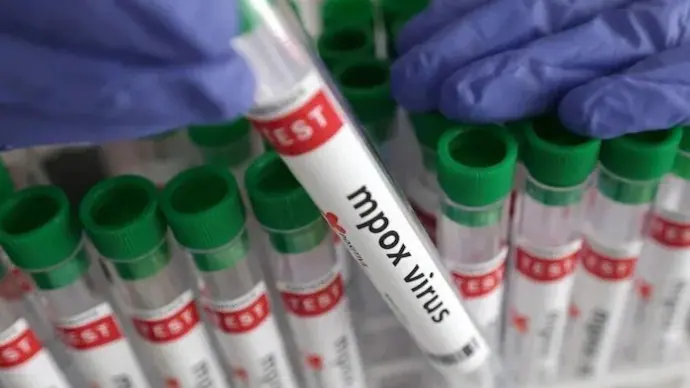Karnataka Reports First Mpox Case of 2025, Health Officials on Alert
Karnataka has reported its first case of monkeypox (Mpox) this year, with a 40-year-old man from Karkala, Udupi district, testing positive for the virus. The patient, who has spent 19 years working in Dubai, returned to Mangalore on January 17, only to develop symptoms such as fever and rashes. Following his arrival, he was immediately isolated in a private healthcare facility in Bengaluru after tests confirmed the presence of the virus. The diagnosis was later verified by the National Institute of Virology (NIV) in Pune. The incident has raised alarm bells among local health authorities, even though officials assure that the condition is stable and there is no cause for panic.
Harsh Gupta, Karnataka’s principal secretary of the Health and Family Welfare Department, reassured the public, emphasising that Mpox is generally a mild viral disease. He explained that, unlike more severe infections like COVID-19, Mpox is not highly contagious and primarily spreads through close contact. “There is no immediate threat to public health, and the disease typically resolves with supportive care,” Gupta said. However, the health department’s prompt action in isolating the patient and initiating contact tracing demonstrates the importance of being vigilant about infectious diseases, especially given the rapid movement of people across international borders in today’s globalised world.
Impact on Public Health: A Rising Concern for Close Contact Transmission
The patient’s exposure to the virus during his stay in Dubai adds a complex layer to the situation. Mpox, a zoonotic virus, can spread through animal bites, scratches, or contact with infected animals such as monkeys, rats, or squirrels. Additionally, close contact with infected people or pets is another common transmission route. In this case, authorities are focusing on the 20 primary contacts of the patient, including his wife, who accompanied him from the airport to the hospital. All identified contacts are being asked to self-isolate as a precautionary measure to prevent further spread.
Health experts highlight the importance of quick detection and isolation in curbing the spread of the virus. Dr Ansar Ahmed, project director of the Disease Surveillance Programme, pointed out that prompt identification through PCR tests of lesion samples is essential to prevent complications and further transmission. The patient’s case, though stabilised, serves as a reminder that infectious diseases, especially those with zoonotic origins, can easily spread if not swiftly contained. The focus remains on symptom management, as most cases tend to resolve on their own, but isolation remains the key measure to protect the public. This highlights a continuing challenge for health authorities in managing diseases that do not always have immediate, visible symptoms.
Sustainability and Health Policy: Preventing the Spread of Infectious Diseases
While Mpox may not have the same catastrophic impact as other viral diseases like COVID-19, it nevertheless highlights significant public health challenges. The globalisation of travel, coupled with the close-knit nature of modern urban life, can create an environment where diseases are more easily transmitted. This case underlines the necessity for sustainable healthcare practices that prioritise quick response systems and preventive measures, such as vaccination for individuals at risk.
Furthermore, public health policies must account for the growing threat of infectious diseases exacerbated by global travel. As urban centres continue to expand and increase in population density, the spread of such diseases becomes a matter of civic concern. Urban development must incorporate healthcare infrastructure capable of handling these issues promptly. Sustainable healthcare planning, including increased funding for disease surveillance and the strengthening of quarantine facilities, will be critical in ensuring public safety as cities grow. The emotional toll on families affected by such diseases, especially in close-knit communities, also requires attention in future policy frameworks that prioritise both physical and mental health.
Karnataka’s Health Response: A Call for Vigilance and Proactive Measures
Karnataka’s swift response to the Mpox case in Udupi district serves as a model for public health management. However, it also underscores the need for continued vigilance, especially as global travel and inter-state movement rise. The state has already initiated measures to trace all primary contacts, monitor their health status, and maintain isolation protocols. Public health officials continue to highlight the importance of vaccination, particularly for healthcare workers and at-risk travellers, in mitigating the spread of such viral diseases. The World Health Organisation (WHO) advocates for immunisation for those who are most exposed to the virus, but the decision to vaccinate should be based on individual risk assessments.
Karnataka’s case is a stark reminder of the importance of effective disease surveillance systems. By maintaining a well-coordinated response involving early detection, isolation, and preventive health measures, the state can mitigate further outbreaks. As the global community continues to face new health challenges, Karnataka’s proactive approach offers valuable lessons for other states and countries in managing emerging infectious diseases while ensuring public confidence in health safety measures.


